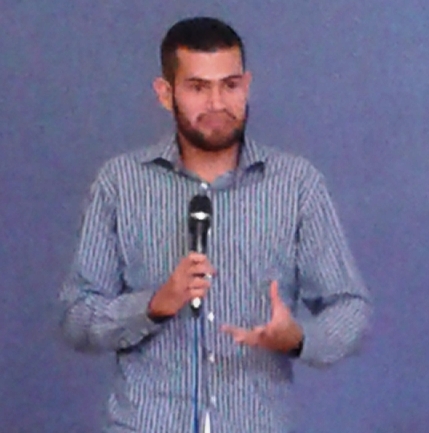
3 Jun 2018 | Focolare Worldwide
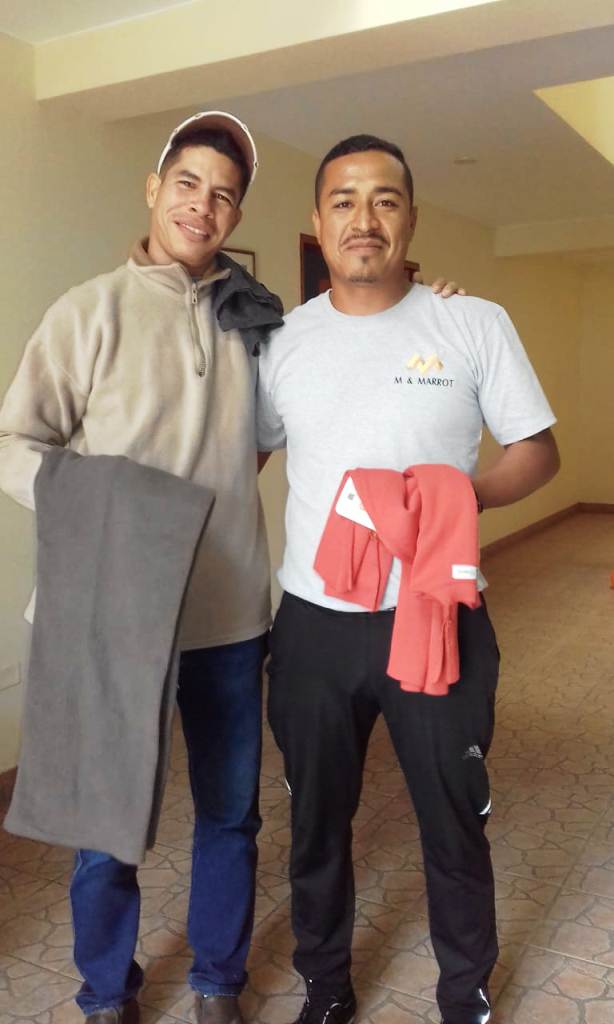 “The influx of immigrants at the border is growing by the hour. The economic crisis that is bringing the country to its knees brings pain both to those who stay and those who decide to flee.” The words of Silvano Roggero, a Venezuelan and son of Italian immigrants, show the drama that an entire people is living through. For the last three years he’s been living in the Focolare center in Lima, Peru. “Despite enormous difficulties caused by the sudden and unexpected entry of hundreds of thousands of people, the neighboring countries, with the usual generosity of these lands, are attempting to take them in. I have personally witnessed one of the many dramas that today’s ‘humanity at the periphery’ is living through. “Just yesterday the director of a school in the peninsula of Paraguaná, in the north of Venezuela, wrote to me. Something different is happening in the office there: a number of parents have come to withdraw their children. They have been forced to leave.” It’s an exodus of biblical proportions, caused by an extremely serious economic and social crisis, one that is overturning the makeup of an entire country. Inflation has skyrocketed, and food, medicine and raw materials are running out. “In December 2017, Ofelia and Armando from the Focolare community in Valencia (the third-largest city of Venezuela), moved to Lima. At first they managed an early childhood center.
“The influx of immigrants at the border is growing by the hour. The economic crisis that is bringing the country to its knees brings pain both to those who stay and those who decide to flee.” The words of Silvano Roggero, a Venezuelan and son of Italian immigrants, show the drama that an entire people is living through. For the last three years he’s been living in the Focolare center in Lima, Peru. “Despite enormous difficulties caused by the sudden and unexpected entry of hundreds of thousands of people, the neighboring countries, with the usual generosity of these lands, are attempting to take them in. I have personally witnessed one of the many dramas that today’s ‘humanity at the periphery’ is living through. “Just yesterday the director of a school in the peninsula of Paraguaná, in the north of Venezuela, wrote to me. Something different is happening in the office there: a number of parents have come to withdraw their children. They have been forced to leave.” It’s an exodus of biblical proportions, caused by an extremely serious economic and social crisis, one that is overturning the makeup of an entire country. Inflation has skyrocketed, and food, medicine and raw materials are running out. “In December 2017, Ofelia and Armando from the Focolare community in Valencia (the third-largest city of Venezuela), moved to Lima. At first they managed an early childhood center.  “Then Ofelia had a dream: find somewhere to offer a preliminary welcome to the swarms of people arriving after travelling seven days over land. We’re talking about close to 300,000 Venezuelans arriving in Peru over the last year and a half! “Ofelia and others,” continues Silvano, “organized a welcome dinner in the Focolare for a small group of Venezuelans. Some already had heard of the movement, but there were some who did not know anything about our group. Our guests came from different parts of the city, some as far as an hour or two away. They find it difficult to get around in this metropolis of almost 10 million inhabitants.” It seemed like a drop in the ocean, but what motivated them was to welcome these people as if they were Jesus in person who turned up at the door. “As you can imagine, faced with their difficult situations, we did not have preconceived solutions. We had no idea where to begin even, although what we could do was offer them a hot meal and listen. Chiara Favotti
“Then Ofelia had a dream: find somewhere to offer a preliminary welcome to the swarms of people arriving after travelling seven days over land. We’re talking about close to 300,000 Venezuelans arriving in Peru over the last year and a half! “Ofelia and others,” continues Silvano, “organized a welcome dinner in the Focolare for a small group of Venezuelans. Some already had heard of the movement, but there were some who did not know anything about our group. Our guests came from different parts of the city, some as far as an hour or two away. They find it difficult to get around in this metropolis of almost 10 million inhabitants.” It seemed like a drop in the ocean, but what motivated them was to welcome these people as if they were Jesus in person who turned up at the door. “As you can imagine, faced with their difficult situations, we did not have preconceived solutions. We had no idea where to begin even, although what we could do was offer them a hot meal and listen. Chiara Favotti
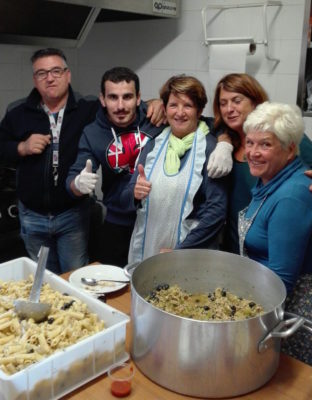
30 May 2018 | Focolare Worldwide
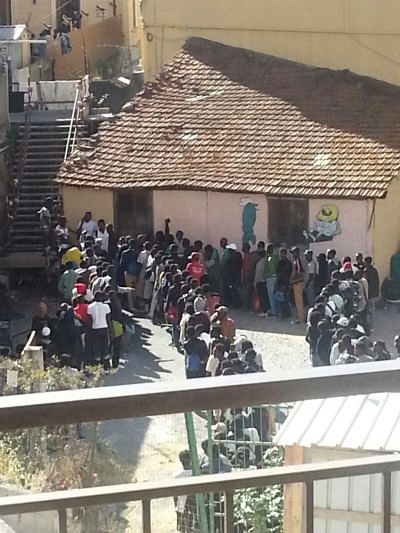 Ventimiglia is a “gate,” not a “border” – at least as long as France does not suspend the agreements in place that allow people to come and go. So it has become a funnel for migrants who consider Italy a stepping stone to reach destinations beyond the border. “In the past year, more than 20,000 people have come through Ventimiglia,” says Paola, a member of the local Focolare community. “It’s like adding another Ventimiglia, since our population is around 24,000 inhabitants.” A teacher at the diocesan seminary, she recalls how “between February and March 2015, the seminarians started to distribute food to the homeless at the station. As days went by, however, the homeless started to multiply.” They were seeing migrants who, after landing on the Italian coast, aimed to cross the border with France and reach other European countries. “That’s when the ‘emergency’ began, and it has not let up since. At the beginning we joined other locals to volunteer and distribute sandwiches on the street.” Collaborating with Caritas, “we contacted the Focolare community on the other side of the border, and they took turns with us, supporting us with money collected from fundraising during Monaco’s Grand Prix. “In June 2015,” she continues, “a Red Cross camp sprung up near the station. Access was limited, but a number of us could enter under HACCP and collaborate in a number of ways.” Alongside this “official” camp was another more “informal” one, right on the border with France. “Many immigrants had no documents, and seeing that the camp organized by the Red Cross required identification, many preferred staying there and trying to cross the border as fast as they could.” Then, at the beginning of October, the camp was dismantled and cleared out in a “pretty rough way.” “When the Red Cross camp was closed in May 2016, we suddenly found ourselves with more than a thousand people in town. It was an unsustainable situation, worsened by a local law that prohibits distributing food and essential goods to immigrants, which carries penalties and tickets. “Then Caritas intervened to mediate. That’s how we started welcoming people at the Church of Sant’Antonio. By day it was a church; by night, a dormitory. Families with children and the most vulnerable were hosted in the church – the pews were moved and we brought covers, and then in the morning we would clean it all up.”
Ventimiglia is a “gate,” not a “border” – at least as long as France does not suspend the agreements in place that allow people to come and go. So it has become a funnel for migrants who consider Italy a stepping stone to reach destinations beyond the border. “In the past year, more than 20,000 people have come through Ventimiglia,” says Paola, a member of the local Focolare community. “It’s like adding another Ventimiglia, since our population is around 24,000 inhabitants.” A teacher at the diocesan seminary, she recalls how “between February and March 2015, the seminarians started to distribute food to the homeless at the station. As days went by, however, the homeless started to multiply.” They were seeing migrants who, after landing on the Italian coast, aimed to cross the border with France and reach other European countries. “That’s when the ‘emergency’ began, and it has not let up since. At the beginning we joined other locals to volunteer and distribute sandwiches on the street.” Collaborating with Caritas, “we contacted the Focolare community on the other side of the border, and they took turns with us, supporting us with money collected from fundraising during Monaco’s Grand Prix. “In June 2015,” she continues, “a Red Cross camp sprung up near the station. Access was limited, but a number of us could enter under HACCP and collaborate in a number of ways.” Alongside this “official” camp was another more “informal” one, right on the border with France. “Many immigrants had no documents, and seeing that the camp organized by the Red Cross required identification, many preferred staying there and trying to cross the border as fast as they could.” Then, at the beginning of October, the camp was dismantled and cleared out in a “pretty rough way.” “When the Red Cross camp was closed in May 2016, we suddenly found ourselves with more than a thousand people in town. It was an unsustainable situation, worsened by a local law that prohibits distributing food and essential goods to immigrants, which carries penalties and tickets. “Then Caritas intervened to mediate. That’s how we started welcoming people at the Church of Sant’Antonio. By day it was a church; by night, a dormitory. Families with children and the most vulnerable were hosted in the church – the pews were moved and we brought covers, and then in the morning we would clean it all up.”  In July 2016 a new Red Cross camp was opened outside the city for men. Women and children continued to be hosted in church. “In 2017 a seemingly infinite influx of minors began, and most of them stayed along the Roya River. The local prefect asked the Red Cross to open up a section of the camp for them. “In the meantime, there were continual sweeps, with hundreds of immigrants boarded on to buses for Taranto in Southern Italy. Yet just days later they were back again. “The fact is,” she explains, “that these people want to reconnect with relatives in other countries, and this is why they are ready to do anything. It’s from here that they can try to cross the border. There are some who have tried ten times before succeeding.” The border is guarded day and night. “Unfortunately, all we are doing is fostering dependency. But they don’t need clothes or a pair of shoes. They need to exercise their freedom of self-determination, which every person should have.” Perhaps the solution could be to create a transit camp, Paola suggests, “a place where an immigrant, during the journey, can stop, find nourishment, wash, change clothes – where they can receive medical attention and legal assistance they need.” Paola calls their service “nothing at all,” but it is these details that help these travelers feel like people again. “We cook African or Arab recipes based on couscous and rice, which we learned how to mix with spices and create dishes according to their traditions. “One day we noticed that a Syrian woman bathed herself each time she came to Caritas, yet she kept putting on the same outfit. She was wearing a tunic with pants. She kept reaching into the piles of clothes, but each time she went away empty handed. “Then we understood and asked some friends from Morocco if they had some clothes in her style. Finally, she was able to change and went away happy.” Source: United World Project
In July 2016 a new Red Cross camp was opened outside the city for men. Women and children continued to be hosted in church. “In 2017 a seemingly infinite influx of minors began, and most of them stayed along the Roya River. The local prefect asked the Red Cross to open up a section of the camp for them. “In the meantime, there were continual sweeps, with hundreds of immigrants boarded on to buses for Taranto in Southern Italy. Yet just days later they were back again. “The fact is,” she explains, “that these people want to reconnect with relatives in other countries, and this is why they are ready to do anything. It’s from here that they can try to cross the border. There are some who have tried ten times before succeeding.” The border is guarded day and night. “Unfortunately, all we are doing is fostering dependency. But they don’t need clothes or a pair of shoes. They need to exercise their freedom of self-determination, which every person should have.” Perhaps the solution could be to create a transit camp, Paola suggests, “a place where an immigrant, during the journey, can stop, find nourishment, wash, change clothes – where they can receive medical attention and legal assistance they need.” Paola calls their service “nothing at all,” but it is these details that help these travelers feel like people again. “We cook African or Arab recipes based on couscous and rice, which we learned how to mix with spices and create dishes according to their traditions. “One day we noticed that a Syrian woman bathed herself each time she came to Caritas, yet she kept putting on the same outfit. She was wearing a tunic with pants. She kept reaching into the piles of clothes, but each time she went away empty handed. “Then we understood and asked some friends from Morocco if they had some clothes in her style. Finally, she was able to change and went away happy.” Source: United World Project
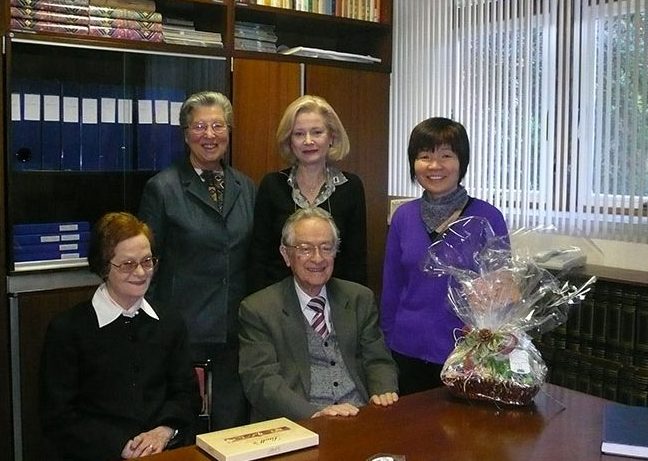
23 May 2018 | Focolare Worldwide
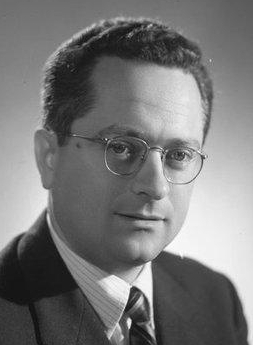 In 1956, invited by his parliamentary colleague, Igino Giordani, Tommaso Sorgi participated in the first Mariapolis held in Fiera di Primiero (Trent, Italy). He was married to Assunta, whom he tenderly loved and who bore him 4 children, but there in the Dolomites, he had gone alone only to please his friend. In fact, he thought that the event would not be so overwhelming. Instead, it was a bolt of lightning. “The encounter with the charism of unity – he recounted– renewed Christianity in me, the interior life and perhaps also the physical one, the sense of existence. Before, I saw my neighbour as a collective name, a group without bearing a single countenance, and was thus nobody. Now my neighbour is a brother or sister who exists or who passes me by.” And while Tommaso was still in the mountains, he made this resolution: “Jesus, I want to be yours, the way You want me to be, dispose of me as you wish.” Born in the province of Teramo on 12 October 1921 from a family of artisans, he graduated with top grades. He became an esteemed professor of sociology in the University of his city, a town councilor (1946-1964), a provincial councillor (1960-1964), and president of the United Institutes and Hospitals (1953-1972). His intelligence and spirit of service with which he played his public role, earned him the trust and votes of the people. In his political life – he was in Parliament from 1953 to 1972 – he stood out for his sensitivity for the weaker classes, stressed in putting in practice what he had learned in the Mariapolis. He wrote: “I am experimenting that we can “live Mary” also in the rowdy world of politics.”
In 1956, invited by his parliamentary colleague, Igino Giordani, Tommaso Sorgi participated in the first Mariapolis held in Fiera di Primiero (Trent, Italy). He was married to Assunta, whom he tenderly loved and who bore him 4 children, but there in the Dolomites, he had gone alone only to please his friend. In fact, he thought that the event would not be so overwhelming. Instead, it was a bolt of lightning. “The encounter with the charism of unity – he recounted– renewed Christianity in me, the interior life and perhaps also the physical one, the sense of existence. Before, I saw my neighbour as a collective name, a group without bearing a single countenance, and was thus nobody. Now my neighbour is a brother or sister who exists or who passes me by.” And while Tommaso was still in the mountains, he made this resolution: “Jesus, I want to be yours, the way You want me to be, dispose of me as you wish.” Born in the province of Teramo on 12 October 1921 from a family of artisans, he graduated with top grades. He became an esteemed professor of sociology in the University of his city, a town councilor (1946-1964), a provincial councillor (1960-1964), and president of the United Institutes and Hospitals (1953-1972). His intelligence and spirit of service with which he played his public role, earned him the trust and votes of the people. In his political life – he was in Parliament from 1953 to 1972 – he stood out for his sensitivity for the weaker classes, stressed in putting in practice what he had learned in the Mariapolis. He wrote: “I am experimenting that we can “live Mary” also in the rowdy world of politics.” 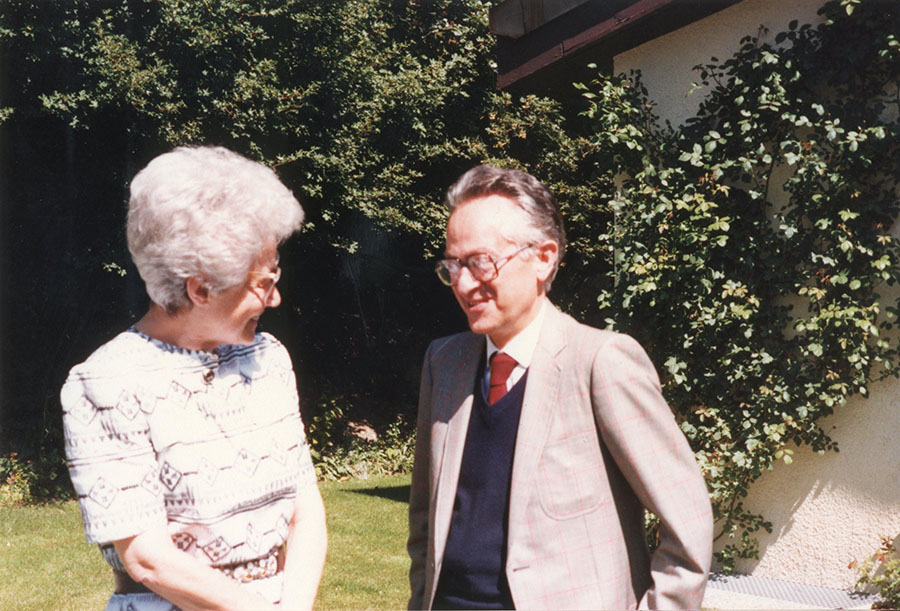 In 1985 with Assunta who also became a married focolarina, he moved to the Center of the Movement to create the “Igino Giordani Centre,” a task which gave him the chance to deepen and bring to light the multifaceted spiritual and human features of his friend and his life model, now a servant of God. Drawing inspiration from the Word Chiara Lubich had given him as a spiritual motto: “Stand up and walk” (John 5.8), he dedicated himself to the development of the New Humanity Movement, with many initiatives among which was the “Triple Pact” – moral, programmatic, participative – elaborated to favour the interaction between the elected and the voters, and the Appeal for the Unity of Peoples, presented to the UN in 1987. There is a long list of his books and essays that range from sociology to the history of Christianity, and from political theory to the figure and thought of Igino Giordani.
In 1985 with Assunta who also became a married focolarina, he moved to the Center of the Movement to create the “Igino Giordani Centre,” a task which gave him the chance to deepen and bring to light the multifaceted spiritual and human features of his friend and his life model, now a servant of God. Drawing inspiration from the Word Chiara Lubich had given him as a spiritual motto: “Stand up and walk” (John 5.8), he dedicated himself to the development of the New Humanity Movement, with many initiatives among which was the “Triple Pact” – moral, programmatic, participative – elaborated to favour the interaction between the elected and the voters, and the Appeal for the Unity of Peoples, presented to the UN in 1987. There is a long list of his books and essays that range from sociology to the history of Christianity, and from political theory to the figure and thought of Igino Giordani.  Leafing through the stages of his long life (96 years), what stands out is the constant striving towards holiness, fully lived in unity with Assunta – who went ahead to the Other Life in 2014 – and the final, vigilant waiting for “the total encounter” with God who called him to Himself last 24 April. At the funeral, among the many testimonials, his daughter, Gabriella spoke significant words on behalf of her siblings: “We thank you for the love you gave us, the efforts offered to civil society with competence, honesty and passion, your commitment to the service of the Church and humanity in the Work of Mary in a vision of the united world and for having transmitted to us a great ideal and for your coherence in a life that pushed you to recuse the privileges of the mandates and prefer giving than having. Thanks for the many gifts we received, of which we were not always aware, but which today acquire new value and depth for us, our children and grandchildren.” The Focolare Movement worldwide joins the family in raising thanks to God for the example of the figure of this great man, brilliant politician, simple focolarino donated to God, in the certainty that he has been welcomed into the immensity of His love.
Leafing through the stages of his long life (96 years), what stands out is the constant striving towards holiness, fully lived in unity with Assunta – who went ahead to the Other Life in 2014 – and the final, vigilant waiting for “the total encounter” with God who called him to Himself last 24 April. At the funeral, among the many testimonials, his daughter, Gabriella spoke significant words on behalf of her siblings: “We thank you for the love you gave us, the efforts offered to civil society with competence, honesty and passion, your commitment to the service of the Church and humanity in the Work of Mary in a vision of the united world and for having transmitted to us a great ideal and for your coherence in a life that pushed you to recuse the privileges of the mandates and prefer giving than having. Thanks for the many gifts we received, of which we were not always aware, but which today acquire new value and depth for us, our children and grandchildren.” The Focolare Movement worldwide joins the family in raising thanks to God for the example of the figure of this great man, brilliant politician, simple focolarino donated to God, in the certainty that he has been welcomed into the immensity of His love.

22 May 2018 | Focolare Worldwide
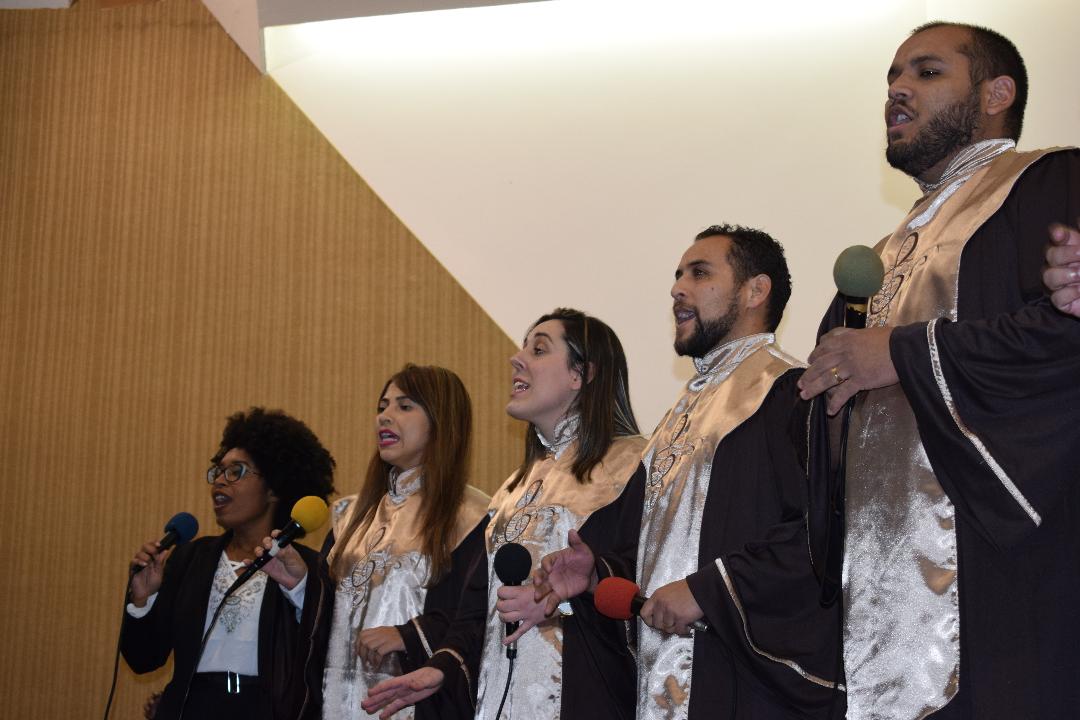 On May 16th, the 18th edition of the Noite Musical ecumenica was held at the Focolare’s Mariapolis Centre in San Leopoldo, Brazil on the occasion of the Week of Prayer for the Unity of Christians. Marina Silva, who is in charge of the Mariapolis centre, explained: “The evening of music was just one of many moments of communion among choirs from different Christian churches within the framework of the ecumenical dialogue that we work on every day.” The event gathered 400 people in a joyful and fraternal atmosphere. They came from the 7th Day Adventist churches, the Evanglical Lutheran Church, the Catholic Church, Baptist Church, JUAD, Missionaries of the Risen Christ and the Emmanuel Community of Praise and Adoration. The Integracion Choral also participated with its senior citizen singers. The theme was The hand of God unites us and liberates us” (Ex 15:1-21). Over the years, the Ecumenical Evening of Music has brought toghether 5 thousand people.
On May 16th, the 18th edition of the Noite Musical ecumenica was held at the Focolare’s Mariapolis Centre in San Leopoldo, Brazil on the occasion of the Week of Prayer for the Unity of Christians. Marina Silva, who is in charge of the Mariapolis centre, explained: “The evening of music was just one of many moments of communion among choirs from different Christian churches within the framework of the ecumenical dialogue that we work on every day.” The event gathered 400 people in a joyful and fraternal atmosphere. They came from the 7th Day Adventist churches, the Evanglical Lutheran Church, the Catholic Church, Baptist Church, JUAD, Missionaries of the Risen Christ and the Emmanuel Community of Praise and Adoration. The Integracion Choral also participated with its senior citizen singers. The theme was The hand of God unites us and liberates us” (Ex 15:1-21). Over the years, the Ecumenical Evening of Music has brought toghether 5 thousand people.
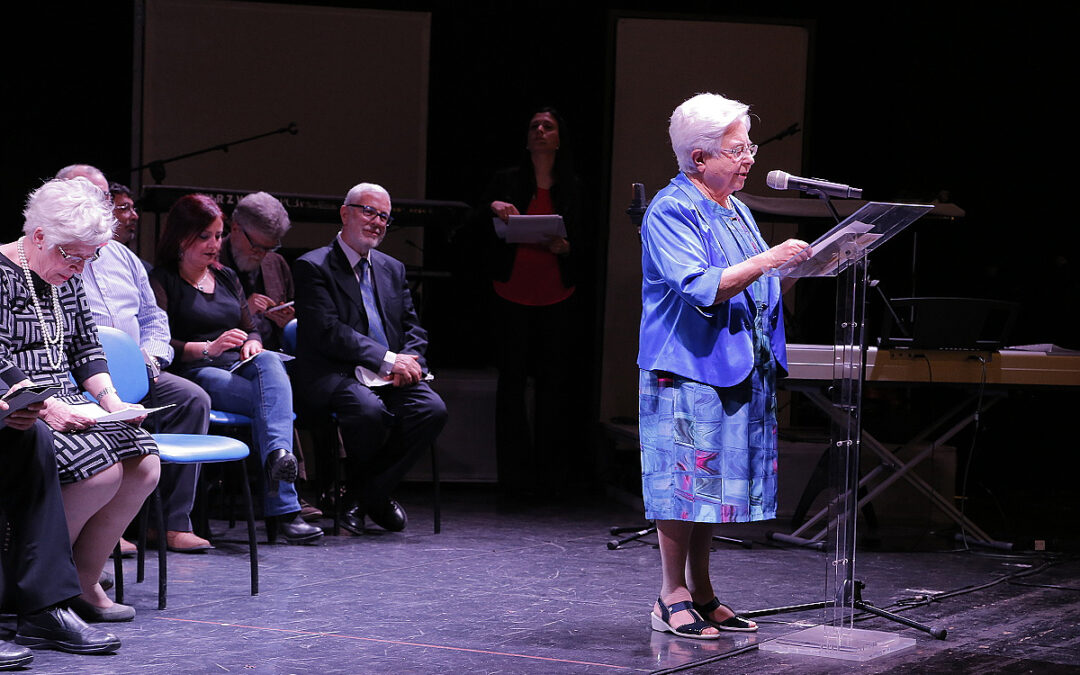
22 May 2018 | Focolare Worldwide

Photo: Federico Patti

Photo: Federico Patti

 “The influx of immigrants at the border is growing by the hour. The economic crisis that is bringing the country to its knees brings pain both to those who stay and those who decide to flee.” The words of Silvano Roggero, a Venezuelan and son of Italian immigrants, show the drama that an entire people is living through. For the last three years he’s been living in the Focolare center in Lima, Peru. “Despite enormous difficulties caused by the sudden and unexpected entry of hundreds of thousands of people, the neighboring countries, with the usual generosity of these lands, are attempting to take them in. I have personally witnessed one of the many dramas that today’s ‘humanity at the periphery’ is living through. “Just yesterday the director of a school in the peninsula of Paraguaná, in the north of Venezuela, wrote to me. Something different is happening in the office there: a number of parents have come to withdraw their children. They have been forced to leave.” It’s an exodus of biblical proportions, caused by an extremely serious economic and social crisis, one that is overturning the makeup of an entire country. Inflation has skyrocketed, and food, medicine and raw materials are running out. “In December 2017, Ofelia and Armando from the Focolare community in Valencia (the third-largest city of Venezuela), moved to Lima. At first they managed an early childhood center.
“The influx of immigrants at the border is growing by the hour. The economic crisis that is bringing the country to its knees brings pain both to those who stay and those who decide to flee.” The words of Silvano Roggero, a Venezuelan and son of Italian immigrants, show the drama that an entire people is living through. For the last three years he’s been living in the Focolare center in Lima, Peru. “Despite enormous difficulties caused by the sudden and unexpected entry of hundreds of thousands of people, the neighboring countries, with the usual generosity of these lands, are attempting to take them in. I have personally witnessed one of the many dramas that today’s ‘humanity at the periphery’ is living through. “Just yesterday the director of a school in the peninsula of Paraguaná, in the north of Venezuela, wrote to me. Something different is happening in the office there: a number of parents have come to withdraw their children. They have been forced to leave.” It’s an exodus of biblical proportions, caused by an extremely serious economic and social crisis, one that is overturning the makeup of an entire country. Inflation has skyrocketed, and food, medicine and raw materials are running out. “In December 2017, Ofelia and Armando from the Focolare community in Valencia (the third-largest city of Venezuela), moved to Lima. At first they managed an early childhood center.  “Then Ofelia had a dream: find somewhere to offer a preliminary welcome to the swarms of people arriving after travelling seven days over land. We’re talking about close to 300,000 Venezuelans arriving in Peru over the last year and a half! “Ofelia and others,” continues Silvano, “organized a welcome dinner in the Focolare for a small group of Venezuelans. Some already had heard of the movement, but there were some who did not know anything about our group. Our guests came from different parts of the city, some as far as an hour or two away. They find it difficult to get around in this metropolis of almost 10 million inhabitants.” It seemed like a drop in the ocean, but what motivated them was to welcome these people as if they were Jesus in person who turned up at the door. “As you can imagine, faced with their difficult situations, we did not have preconceived solutions. We had no idea where to begin even, although what we could do was offer them a hot meal and listen. Chiara Favotti
“Then Ofelia had a dream: find somewhere to offer a preliminary welcome to the swarms of people arriving after travelling seven days over land. We’re talking about close to 300,000 Venezuelans arriving in Peru over the last year and a half! “Ofelia and others,” continues Silvano, “organized a welcome dinner in the Focolare for a small group of Venezuelans. Some already had heard of the movement, but there were some who did not know anything about our group. Our guests came from different parts of the city, some as far as an hour or two away. They find it difficult to get around in this metropolis of almost 10 million inhabitants.” It seemed like a drop in the ocean, but what motivated them was to welcome these people as if they were Jesus in person who turned up at the door. “As you can imagine, faced with their difficult situations, we did not have preconceived solutions. We had no idea where to begin even, although what we could do was offer them a hot meal and listen. Chiara Favotti

 Ventimiglia is a “gate,” not a “border” – at least as long as France does not suspend the agreements in place that allow people to come and go. So it has become a funnel for migrants who consider Italy a stepping stone to reach destinations beyond the border. “In the past year, more than 20,000 people have come through Ventimiglia,” says Paola, a member of the local Focolare community. “It’s like adding another Ventimiglia, since our population is around 24,000 inhabitants.” A teacher at the diocesan seminary, she recalls how “between February and March 2015, the seminarians started to distribute food to the homeless at the station. As days went by, however, the homeless started to multiply.” They were seeing migrants who, after landing on the Italian coast, aimed to cross the border with France and reach other European countries. “That’s when the ‘emergency’ began, and it has not let up since. At the beginning we joined other locals to volunteer and distribute sandwiches on the street.” Collaborating with Caritas, “we contacted the Focolare community on the other side of the border, and they took turns with us, supporting us with money collected from fundraising during Monaco’s Grand Prix. “In June 2015,” she continues, “a Red Cross camp sprung up near the station. Access was limited, but a number of us could enter under HACCP and collaborate in a number of ways.” Alongside this “official” camp was another more “informal” one, right on the border with France. “Many immigrants had no documents, and seeing that the camp organized by the Red Cross required identification, many preferred staying there and trying to cross the border as fast as they could.” Then, at the beginning of October, the camp was dismantled and cleared out in a “pretty rough way.” “When the Red Cross camp was closed in May 2016, we suddenly found ourselves with more than a thousand people in town. It was an unsustainable situation, worsened by a local law that prohibits distributing food and essential goods to immigrants, which carries penalties and tickets. “Then Caritas intervened to mediate. That’s how we started welcoming people at the Church of Sant’Antonio. By day it was a church; by night, a dormitory. Families with children and the most vulnerable were hosted in the church – the pews were moved and we brought covers, and then in the morning we would clean it all up.”
Ventimiglia is a “gate,” not a “border” – at least as long as France does not suspend the agreements in place that allow people to come and go. So it has become a funnel for migrants who consider Italy a stepping stone to reach destinations beyond the border. “In the past year, more than 20,000 people have come through Ventimiglia,” says Paola, a member of the local Focolare community. “It’s like adding another Ventimiglia, since our population is around 24,000 inhabitants.” A teacher at the diocesan seminary, she recalls how “between February and March 2015, the seminarians started to distribute food to the homeless at the station. As days went by, however, the homeless started to multiply.” They were seeing migrants who, after landing on the Italian coast, aimed to cross the border with France and reach other European countries. “That’s when the ‘emergency’ began, and it has not let up since. At the beginning we joined other locals to volunteer and distribute sandwiches on the street.” Collaborating with Caritas, “we contacted the Focolare community on the other side of the border, and they took turns with us, supporting us with money collected from fundraising during Monaco’s Grand Prix. “In June 2015,” she continues, “a Red Cross camp sprung up near the station. Access was limited, but a number of us could enter under HACCP and collaborate in a number of ways.” Alongside this “official” camp was another more “informal” one, right on the border with France. “Many immigrants had no documents, and seeing that the camp organized by the Red Cross required identification, many preferred staying there and trying to cross the border as fast as they could.” Then, at the beginning of October, the camp was dismantled and cleared out in a “pretty rough way.” “When the Red Cross camp was closed in May 2016, we suddenly found ourselves with more than a thousand people in town. It was an unsustainable situation, worsened by a local law that prohibits distributing food and essential goods to immigrants, which carries penalties and tickets. “Then Caritas intervened to mediate. That’s how we started welcoming people at the Church of Sant’Antonio. By day it was a church; by night, a dormitory. Families with children and the most vulnerable were hosted in the church – the pews were moved and we brought covers, and then in the morning we would clean it all up.” 
 In 1956, invited by his parliamentary colleague,
In 1956, invited by his parliamentary colleague, 

 On May 16th, the 18th edition of the Noite Musical ecumenica was held at the Focolare’s Mariapolis Centre in San Leopoldo, Brazil on the occasion of the Week of Prayer for the Unity of Christians. Marina Silva, who is in charge of the Mariapolis centre, explained: “The evening of music was just one of many moments of communion among choirs from different Christian churches within the framework of the
On May 16th, the 18th edition of the Noite Musical ecumenica was held at the Focolare’s Mariapolis Centre in San Leopoldo, Brazil on the occasion of the Week of Prayer for the Unity of Christians. Marina Silva, who is in charge of the Mariapolis centre, explained: “The evening of music was just one of many moments of communion among choirs from different Christian churches within the framework of the 

